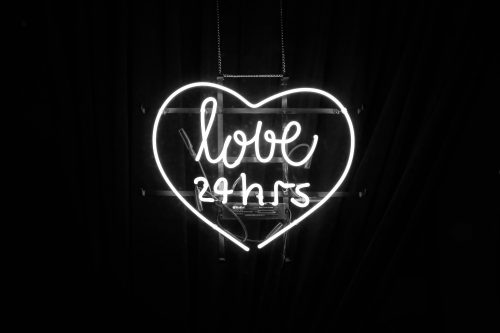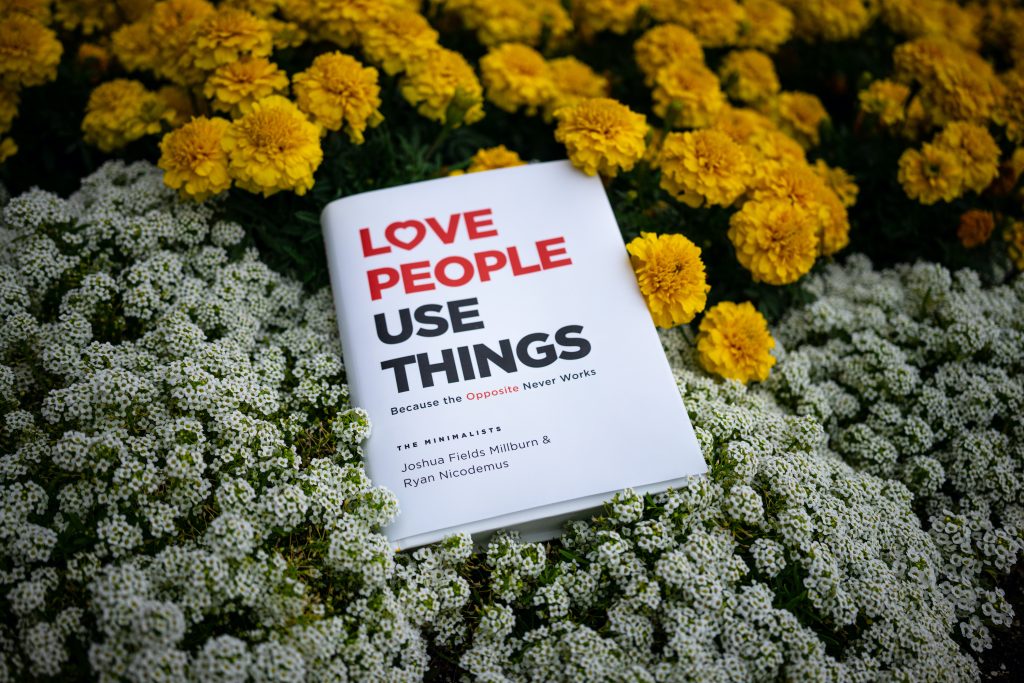We have a love-language problem. You love your husband, but you also love burritos? You love your best friend, but you also love the new Mat Kearney album? You love your daughter, but you also love the various colors of flowers in your neighborhood?
One love involves bottomless devotion birthed from deep affection.
The other, a preference or fondness for something enjoyable.
And then there’s the distinction between loving someone
and being in love with them.
The same word, two utterly different meanings.
The Inuit dialect spoken in Canada’s Nunavik region has at least 53 words to describe snow. Imagine if we had even half that for love. Instead, in our culture, we stretch love to apply to people and pick-up trucks, friends and fried chicken, lovers and Louis Vuitton bags. But when you extend anything beyond its natural limits, it loses its strength. This is especially true with love.
What do we mean when we end a phone call with “love ya”? Is it just a nice way to say goodbye? Or is it simply the lazy way to say “I love you”? And when we remove the “I,” do we alter the meaning even further, abdicating ourselves of the real responsibilities of love by removing ourselves from the equation?
We all need love. But love isn’t all we need. We need to be seen, we need to be heard, we need connection. We need sincerity and grace and kindness. But these characteristics are subdued outside the spotlight of love. Can you even imagine sincerity without love? How about grace? Kindness? Take it a step further: can you imagine getting everything you ever wanted, fulfilling all your dreams, without love? Not a chance. Like building a two-dimensional house or drinking from an empty cup, a life without love is flat and empty.
If love opens the door to the best parts of life, why, then, do we not seek to be loved more often? Why would we rather be sexy or cool or “liked”? Because it’s easier. We can manipulate our surface values to increase our status, but when you look at someone who’s trying too hard to be trendy or glamorous, what do you find? A person who lacks integrity, a person so uncomfortable with his or herself that they hide from love by draping their personality with shiny adornments.
That’s why love is difficult: it can’t be shaped by trinkets or transactions, only fidelity and support and dedication. Sex appeal and likability quickly fade in the face of uncertainty. Love, however, makes room for risk and rejection and even pain. There’s also plenty of space for joy and pleasure and tranquility. The only thing, in fact, that won’t fit within the confines of love is self-centeredness. Love is too big for the self alone.
If you consult your nearest dictionary, you’ll find that love has several meanings—an intense feeling of deep affection; a great interest and pleasure in something; a person or thing that one loves—but my favorite definition is one I never thought much about. The fourth entry in the New Oxford American Dictionary defines love as a tennis term: “love: a score of zero.”
In the context of a tennis match, that means one thing. But as a broader metaphor, it means everything. Real love, when removed from the desires and commodification of the modern world, doesn’t keep score. There’s no balance sheet, no barometer, no measuring stick for love.
A decade ago, I didn’t know my wife, Rebecca. But after we met, and as we cultivated our love, I didn’t have to extract love from some other relationship to cast ours. When we give love, we don’t run out. If anything, it multiples. Love is fully renewable, 100% sustainable.
People don’t simply “fall in love”—love is cultivated. Love can’t be found. I know because I “searched for love” for years after my failed marriage. But the more I Iooked, the more distant it seemed. Inexplicably, I “found” love only when I stopped looking for it—when, instead of concentrating on “falling in love,” I focused simply on being loving.
In a strange way, being loving might be the opposite of falling in love. This makes sense in hindsight since, when I was obsessed with falling in love, the pursuit was egocentric. But when my main concern was loving others, the love swelled because it was no longer exclusively about me.
It may seem paradoxical, but the best way to hold on to love is to let go. Love expands if we don’t hold it tightly. So if we want it to stick around, we must loosen our grip.
You don’t need permission to be loving. During difficult times, you may want to help, you may want to fix problems, but that’s not always possible. You can’t help everyone. You can’t fix everything. But you can love no matter the situation.
Indeed, amid a disagreement, an argument, or even a total fallout, we can love people. Sometimes that love is nearby; sometimes we must love from afar. Loving someone doesn’t mean that you approve of their actions. You can love a cheating spouse, a gossiping coworker, or a lying friend—loving the person, not their behaviors. It is possible to dislike certain parts of someone and still love every piece of them.
While love is heavy and demanding and enigmatic, our biggest challenge isn’t love itself—it’s how we’ve conflated excitement, lust, and attraction with love. Nowhere is this more evident than our material possessions. We say we love our televisions, our cars, our cosmetics, but we’re confused, blinded by the propaganda that tells us the things in our homes are just as important as the people in our lives.
It’s easy to see the absurdity of this manufactured love when we extend it to less enticing items. No one I know “loves” their toilet-paper dispenser, their mailbox, their keyring. Yet we use these things just as much as, if not more than, the things we think we love. When we realize this—that we can use things without loving them, that we can treat our iPhone similar to our chapstick, useful but not worthy of our love—then we are better able to understand real love, a love that is reserved for people, not the things that get in the way. It is possible to love people and use things, because the opposite never works.
Order The Minimalists’ new book, Love People, Use Things today.


